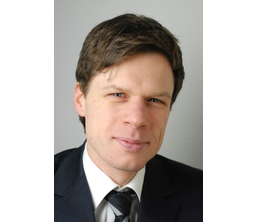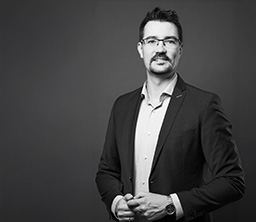NOWATER
The project "Emergency preparedness planning of water supply and disposal of health care facilities - organisational and technical solution strategies to increase resilience (NOWATER)" aims to develop a practical guide to ensure water supply and disposal as well as energy supply of hospitals in the event of a crisis.
In crisis situations, maintaining the operation of health and care facilities is crucial for ensuring public safety and for crisis management. Health care facilities, especially hospitals, are a critical infrastructure (CRITIS) that is indispensable for society. As highly sensitive and complex systems, hospitals are dependent on the permanent and reliable availability of other infrastructure systems, which are also necessary in crisis situations to maintain their functionality and to protect the people being cared for or working there.
At a Glance
| Category | Description |
|---|---|
| Research project | Emergency preparedness planning of water supply and disposal of health care facilities - organisational and technical solution strategies to increase resilience (NOWATER) |
| Persons involved |
Prof. Dr.-Ing. Alexander Fekete Manuel Geiger Chris Hetkämper |
| Partners |
Universität der Bundeswehr München AGAPLESION HYGIENE: Institut für Hygiene und Umweltmedizin Germany Federal Office of Civil Protection and Disaster Assistance Strecker Wassertechnik GmbH teckons GmbH & Co.KG TH Köln United Nations University |
| Sponsors | Federal Ministry of Education and Research (BMBF) |
| Duration | May 2020 - Apr 2023 |
| Associated Partners |
Gesellschaft für Hygiene, Umweltmedizin und Präventivmedizin e.V. Bayerisches Landesamt für Gesundheit und Lebensmittelsicherheit RoMed Kliniken Staatliche Feuerwehrschule Geretsried Stadtentwässerung Rosenheim Stadtwerke Rosenheim Netze GmbH German Environment Agency (Umweltbundesamt) |
Emergency medical and intensive care treatment is not possible without equipment and thus without power supply. In addition, compliance with hospital hygiene - especially for immunocompromised patients - is imperative for maintaining hospital operations. The basic prerequisite for maintaining hygiene is a functioning water supply and the subsequent disposal of the wastewater produced. While hospitals can usually cope with power failures by using emergency generators, at least temporarily [requirement according to the hospital building regulations of the Länder], the unrestricted supply of drinking water as part of the emergency supply cannot be managed independently, even in the short term. In crisis situations, triggered for example by a large-scale power blackout, the provision of water in sufficient quantity and quality is also a major challenge for the hospital operator and all other relevant actors. This is where the NOWATER project comes in to develop solutions.
The sub-project "Organisation of emergency preparedness planning to secure the water supply, water disposal and energy supply of hospitals in the event of extraordinary damage events" of the Institute for Rescue Engineering and Hazard Prevention at the TH Köln is mainly concerned with the creation of an organisational concept. This concept includes recommendations and measures for maintaining the functionality of hospitals in the event of a crisis in order to provide operators with guidance for organising emergency care with a limited supply infrastructure. It thus goes beyond the current status of hospital alarm plans, also takes into account the failure of critical infrastructures and offers solutions for preparation and management in equal measure. Furthermore, interfaces to involved or affected third parties, such as authorities and organisations with security tasks (BOS) or infrastructure operators, are taken into account.
 Sponsored by the Federal Ministry of Education and Research
(Image: BMBF)
Sponsored by the Federal Ministry of Education and Research
(Image: BMBF)


